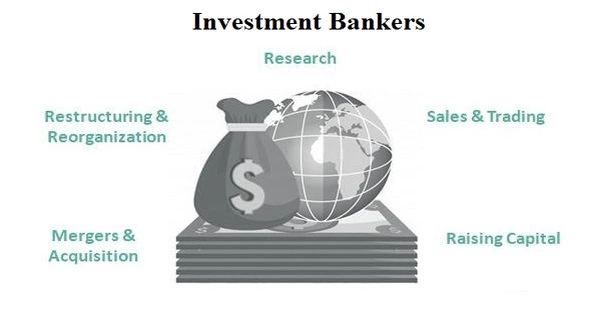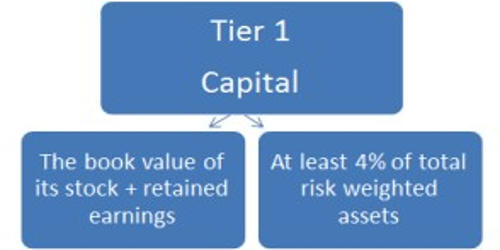Investment bankers are professionals who provide financial advice and services to corporations, governments, and other institutions. They help their clients raise capital by underwriting and issuing securities, such as stocks and bonds, and provide merger and acquisition advice.
Investment bankers work in large financial institutions, such as banks, securities firms, and private equity firms. They may specialize in a particular industry or geographic region, or they may work in a generalist role. Some investment bankers also work independently as consultants.
Investment bankers act as financial intermediaries in the security offering process. They buy securities from corporations and governments and resell them to the public. Thus, investment bankers bring together suppliers and users of long-term funds in a capital market, playing an important role in the security offering process. Investment bankers are neither investors nor bankers, it should be noted. They do not permanently invest their own funds, nor do they accept and safeguard the savings of others, as commercial banks do.
The job of an investment banker involves analyzing financial data and market trends, identifying potential investors or buyers, developing financial models and projections, and negotiating deals on behalf of their clients. They work long hours, often under intense pressure, and may need to travel frequently to meet with clients or attend industry conferences.
To become an investment banker, one typically needs to have a degree in finance, economics, or a related field, and gain experience through internships or entry-level positions in a financial institution. Strong analytical and communication skills, as well as the ability to work well under pressure, are important qualities for success in this field.
Functions of Investment Bankers
Investment bankers’ traditional function has been to act as middlemen in channeling individual savings and funds into the purchase of business securities. However, they now also offer advice and assistance in the distribution of securities. Thus, investment bankers perform the following four basic functions:
(1) Underwriting
An investment banker guarantees the issuer that it will receive a specific amount from the security issue when underwriting it. In this process, an investment banker purchases a security at a lower price and then sells it at a higher price, known as the offer price to the public. Underwriting, in this sense, is the insurance function of bearing the risks of adverse price fluctuation during the distribution period. Investment bankers take on this risk in exchange for a percentage of the underwriting spread or commission. If an investment banker is unable to sell securities at the specified price, the underwriter bears the loss, not the company. The following equation is used to calculate the underwriter’s gain or loss.
Gain or loss to underwriter = Gross proceed- proceed to the company- underwriter’s expenses.
Where, Gross proceed = price to public X number of shares to be issued.
(2) Distributing
Once the investment banker has acquired new securities. It has to get them into the hands of the final investors. As a result, the second function of an investment banker is to market new securities issues. The investment banker is a specialist who has a staff and a structure in place to distribute securities. As a result, they perform physical distribution functions more efficiently and economically than a single company.
(3) Advising
Through experience, the investment banker becomes an expert in the issuance and marketing of new securities. Investment bankers can provide valuable advice and counsel to businesses. Thus, investment bankers provide advice by analyzing the firm’s financial needs and recommending appropriate financing options.
(4) Making A Market
If a company goes public for the first time, the investment banker may be required to keep a market for the shares open after the IPO. In general, the investment banker agrees to make a market in the stock and keep it reasonably liquid. In order to make a market, the underwriter keeps a stock inventory, quotes bid and asked prices, and stands ready to buy and sell at those prices.
















